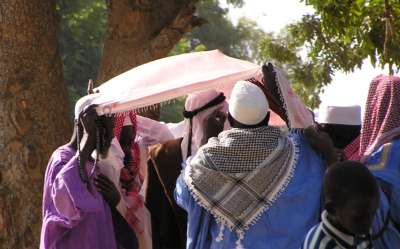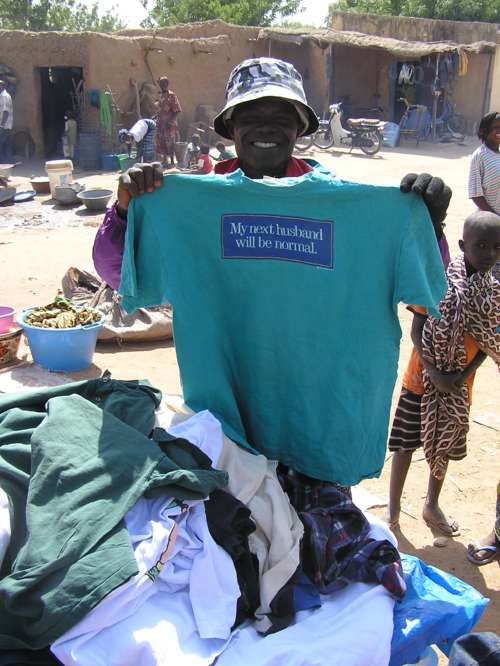The above is a 10-minute video clip about my ongoing fieldwork on marriage and gender dynamics in Bamako.
The sun sets over adobe rooftops in Dougabougou (Segou region).
Shaded by his followers, an imam readies to recite a verse of the Qur’an on the Eid al-Kabir, one of the biggest Muslim holidays, in Dougabougou.
The view from a Malian bush taxi: most vehicles here were imported used from Western Europe, so it’s common to see them still bearing stickers and logos in German or Dutch.
In the 1930s and 40s, French colonizers had a vast system of canals dug to the north of the Niger River with the aim of growing commodity crops in this arid region. During droughts in the 1970s, local residents dug ditches from those canals to irrigate their own gardens.
Watering a dry-season garden plot from the same system of ditches, west of Siribala.
A farmer takes a break from harvesting groundnuts to answer his cell.
A used clothing vendor in Dougabougou: Known as yugu-yugu (for “shake the dust off”) in the Bamanan language, second-hand clothes imported from Europe and North America are a widespread form of dress in Mali–mostly because of their low price. I bought this one for my wife.



You must be logged in to post a comment.